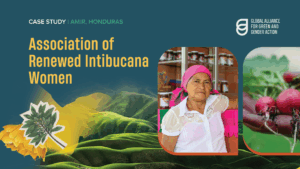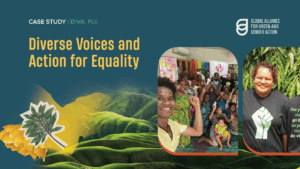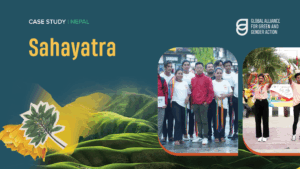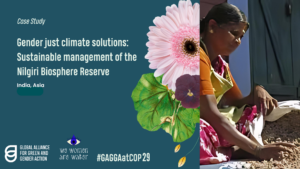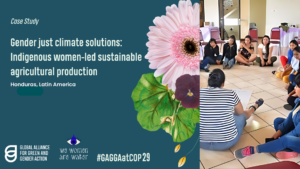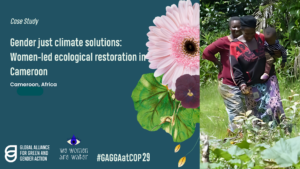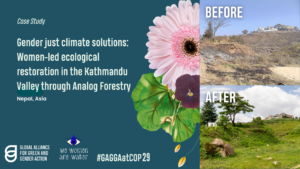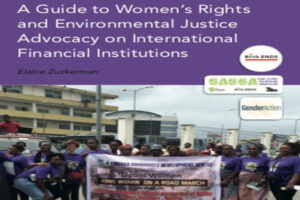Resources
Discover new tools and resources from GAGGA, with practical insights from our global network. Explore case studies, reports, and strategies to strengthen climate action, and gender and environmental justice efforts.
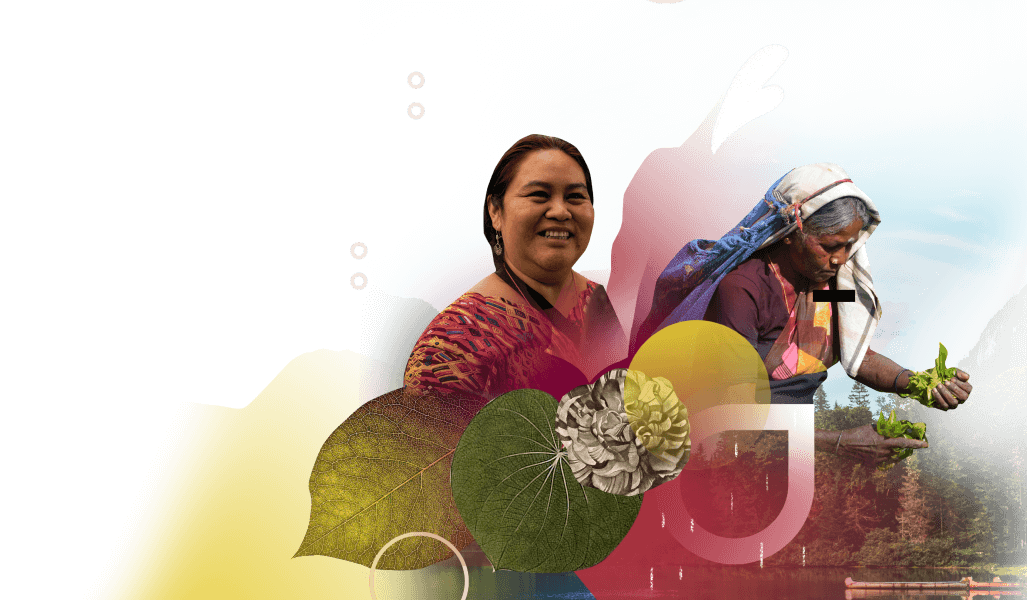
Association of Renewed Intibucana Women
The Association of Renewed Intibucana Women (Asociación de Mujeres Intibucanas Renovadas, AMIR), is a community based organization of some 650 Indigenous Lenca women in 25 communities. Its organizational structure includes 32 grassroots groups. AMIR promotes women-led sustainable agricultural production, which contributes to climate adaptation and mitigation, and is supported by FCAM. To learn more, downloadContinue reading “Association of Renewed Intibucana Women”
Diverse Voices and Action for Equality
Diverse Voices and Action for Equality (DIVA for Equality) was founded in 2011 in Fiji by a group of gender non-binary and transmasculine individuals. The group’s work focuses on issues of human rights, social justice, as well as just and inclusive development. At the core of its commitments is a recognition that LGBTQI+ people andContinue reading “Diverse Voices and Action for Equality”
Sahayatra
Sahayatra Nepal is a community-based organization (CBO) founded and led by local women in Ilam District, in eastern Nepal. Sahayatra Nepal aims to improve the lives of women in Ilam by addressing the various challenges they face, including the impacts of climate change and environmental degradation. A collaboration between partners of the Global Alliance ofContinue reading “Sahayatra”
Kebetkache Women Development & Resource Centre
Kebetkache Women Development & Resource Centre (Kebetkache), a community-based organization (CBO) in Nigeria works to promote women’s rights and environmental justice. The word (Kebetkache) is an Indigenous word for wetland, thus evoking the Niger Delta region where the organization operates. Kebetkache supports women to understand their rights and empowers them to engage and find concreteContinue reading “Kebetkache Women Development & Resource Centre”
Gender just climate solution: Sustainable management of the Nilgiri Biosphere Reserve in India
As part of Aadhimalai, small-scale Adivasi women, are ensuring sustainable management of the biosphere as gender just climate solution!
Gender just climate solution: Lenca Women Reclaiming Their Land Through Agroecology in Honduras
Indigenous women of the Lenca community are reclaiming their ancestral lands and restoring ecosystems through gender just climate solution!
Gender just climate solution: Women-led ecological restoration in Cameroon
In Mbiame Village, in northwest Cameroon, women are using the gender just climate solution of Analog Forestry to restore degraded ecosystems!
Gender just climate solution: Restoring Ecosystems Through Analog Forestry In Nepal
In Nepal, the Women’s Empowerment Center (WEC) is leading a gender just climate solution!
GAGGA and Gender Action launch the resource “A Guide to Women’s Rights and Environmental Justice Advocacy on International Financial Institutions”
Over 35 years ago, environmental justice groups launched a movement to prevent harmful environmental impacts of International Financial Institutions´ (IFIs) investments. Until recently, women’s rights groups did not play a significant role within the movement of civil society organisations (CSOs) that hold IFIs accountable for the societal and environmental impacts of their policies and investments.Continue reading “GAGGA and Gender Action launch the resource “A Guide to Women’s Rights and Environmental Justice Advocacy on International Financial Institutions””
Executive summary: GAGGA’s impact 2016-2019
Between January and October 2020, GAGGA conducted a final external evaluation to assess its impact, key outcomes and performance in its first four years of implementation. Below are some of the key findings: 74.5 percent of GAGGA’s total budget was directly allocated to support grassroots groups, funds and NGOs working on women’s rights and environmental justice.Continue reading “Executive summary: GAGGA’s impact 2016-2019”




